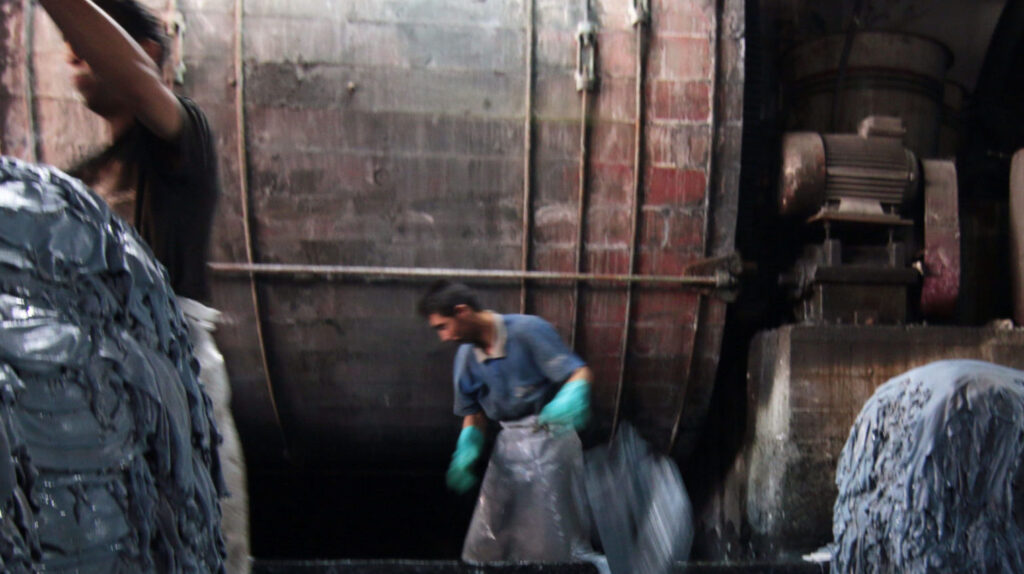The CSDD directive aims to combat human rights violations and environmental damage caused by companies.
On 15th March 2024, member states approved the final version of the Due Diligence Directive.
The final version of the European Due Diligence Directive, largely inspired by the French text, has been approved.
In February 2022, the European Commission had presented its first proposal for a directive on Corporate Sustainability Due Diligence. This text was largely inspired by the French law on due diligence. In France, this pioneering law had applied since 2017 following several human rights abuse scandals, such as the Rana Plaza collapse in Bangladesh in 2013.
At European level, the CSDD directive aims to combat human rights violations and environmental damage caused by companies. This regulatory development is a key step in the European Union’s action plan for sustainable finance. It also contributes to the EU’s efforts to make the transition to a greener, climate-neutral economy. This transition is outlined in the Green Pact for Europe and the United Nations’ Sustainable Development Goals (“SDGs”).
On 15th March 2024, member states approved the final version of the Due Diligence Directive. This legislation imposes obligations on companies to protect human rights and the environment in their global production chains. The CSDD will apply progressively to European and foreign companies operating in the European Union. In this way, the Council of the European Union wishes to “strengthen the protection of the environment and human rights in the European Union and beyond.”

The CSDD does not only apply to the activities of companies in Europe.
From now on, companies will have to monitor the impact of their entire production and supply chain, both upstream and downstream.
The Due Diligence Directive forces to consider upstream the environmental and human risks posed by a company’s activities as a whole, beyond national borders.
The Due diligence Directive aims to integrate human rights and environmental impact into corporate governance. Indeed, the CSDD introduces an obligation for the companies concerned to mitigate the negative impact of their activities. Thus, the European Parliament states that it wants to prevent “slavery, child labor, labor exploitation, the degradation of biodiversity, pollution and the destruction of natural heritage.”
The CSDD does not only apply to the activities of companies in Europe. The regulations also cover the actions of their subsidiaries and business partners, both within and outside the European Union. From now on, companies will have to monitor the impact of their entire production and supply chain, both upstream and downstream. This includes design, manufacturing, transport and supply partners, as well as those involved in distribution, transport and storage. Only the phase of use of the company’s products or provision of services is excluded from the scope of application.
In addition, the companies concerned will be required to integrate the due diligence into their risk management policies and systems. The text also provides a framework for associated sanctions, civil liability in the event of violation of these requirements, and the obligation to adopt a plan guaranteeing the compatibility of their business model with the Paris Climate Agreement. This ground-breaking legislative initiative thus promotes a sustainable global economy and the integration of sustainability into corporate governance and risk management systems.
Bad performers face fines of up to 5% of worldwide net sales
Clarification of the civil liability and legal sanction framework for companies failing to comply with the Due Diligence Directive.
The Due Diligence Directive provides a framework for civil liability. This means that the companies concerned will be legally responsible for human rights violations and environmental damage caused within their “chain of activity”. In addition, civil liability guarantees full compensation for victims of breaches of due diligence.
To prevent this legal risk, these companies will have to set up processes for receiving complaints and for dialogue with communities affected by their activities. The final text of the directive also provides for the establishment of a supervisory authority by each Member State. This watchdog will be responsible for identifying and sanctioning companies that fail to meet their obligations. Bad performers will face fines of up to 5% of their worldwide net sales. Publication of the name of the sanctioned company and the purpose of the fine is also provided for (“name and shame” principle). The Commission will be tasked with creating a European network of supervisory authorities to foster cooperation between them.
The CSDD directive will gradually apply to over 5,000 companies operating in Europe.
Leaders: there’s a good chance you’ll be affected in the short to medium term by the Due Diligence Directive.
The new European Due Diligence Directive directly concerns over 5,000 companies, and will have a major impact on all businesses.
Which companies are affected by the CSDD directive?
Companies meeting the following criteria are directly concerned:
European companies and foreign companies operating in the EU with :
>1000 employees and
> 450 million euros in sales
SMEs are not directly concerned by the regulation, but will be affected in the medium term: companies subject to the directive will choose suppliers that enable them to meet their due diligence obligations throughout their business chain.
The agreement reached by legislators in December 2023 provided for the directive to apply to European groups with more than 500 employees and worldwide net sales of at least €150 million. A lower threshold was also envisaged for at-risk sectors, but this sector-by-sector approach was discarded in the final version of the text.
With the lowering of the application thresholds, the CSDD will finally apply to over 5,000 companies operating in Europe. The latter will benefit from a phased-in implementation, with the first application in 2027 for companies with over 5,000 employees and sales of over 1.5 billion euros.
The CSDD directive requires companies to identify and measure the actual or potential negative impacts of their activities.
What are the regulator’s expectations?
As soon as the CSDD directive comes into force, these companies will be required to :
- Identify and measure actual or potential negative impacts on human rights and the environment, and take steps to prevent or mitigate them;
- Integrate the due diligence into their risk management policies and systems;
- Engage in constructive dialogue with stakeholders on respect for human rights and the environment;
- Implement an alert procedure accessible to the entire activity chain;
- Provide transparent information on compliance with their obligations;
- Provide a transformation plan to contribute to the objectives of the Paris Agreement;
- Provide information to Supervisory Boards and Boards of Directors so that they can take account of due diligence obligations.
The Due Diligence Directive provides a long list of benchmarks to which companies can refer to implement their obligations of vigilance.
What are the methodologies and standards recommended by Europe to integrate the obligations stemming from the Due Diligence Directive?
The Due Diligence Directive provides a long list of benchmarks to which companies can refer to implement their obligations of vigilance.
United Nations conventions on human rights :
- International Covenant on Civil and Political Rights
- International Covenant on Economic, Social and Cultural Rights
- Convention on the Rights of the Child
- Fundamental Conventions of the International Labor Organization: on freedom of association and protection of the right to organize, on the right to organize and collective bargaining, on forced labor, on the abolition of forced labor, on minimum age, on the worst forms of child labor, on equal remuneration, on discrimination (employment and occupation).
Fundamental conventions on environmental protection :
- 1992 Convention on Biological Diversity
- Cartagena Protocol on Biosafety
- Nagoya Protocol on Access to Genetic Resources and the Fair and Equitable Sharing of the Benefits Arising out of their Utilization
- Convention on International Trade in Endangered Species of Wild Fauna and Flora
- Minamata Convention on Mercury
- Stockholm Convention on Persistent Organic Pollutants
- Rotterdam Convention
- Montreal Protocol on Substances that Deplete the Ozone Layer
- Basel Convention on the Control of Transboundary Movements of Hazardous Wastes and their Disposal
- Convention concerning the Protection of the World Cultural and Natural Heritage
- Convention on Wetlands of International Importance
- International Convention for the Prevention of Marine Pollution from Ships (MARPOL)
- United Nations Convention on the Law of the Sea
About Positiveco
At Positivéco, we see new national and international CSR regulations as vectors for positive growth.
Our job: to improve the readability of your activities for a better valuation.
Since 2009, we have been supporting financial institutions, public players, and listed and unlisted companies in the evaluation of their CSR policies, the production of their extra-financial reporting and the implementation of their climate investment and aid projects. Development.
Request a callback today and find out how to meet the new requirements of economic transparency while serving the project of your company.









Contact us now!